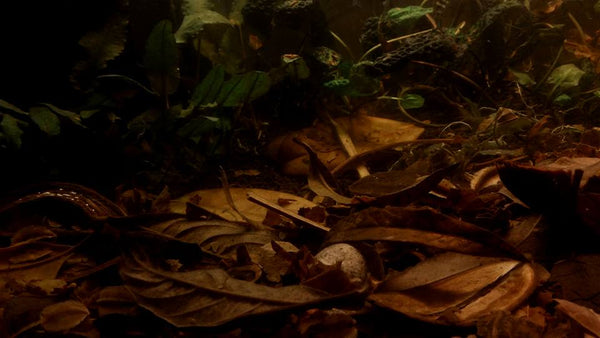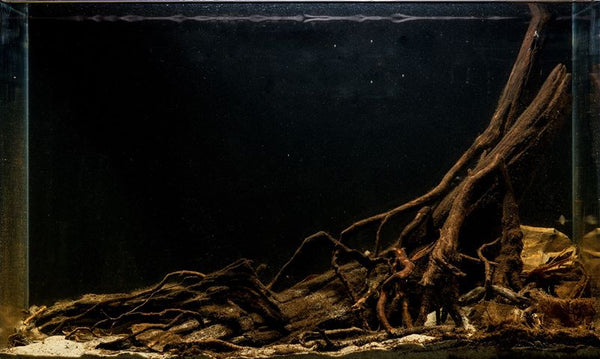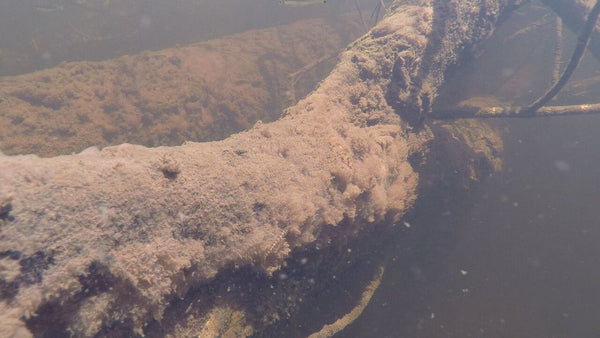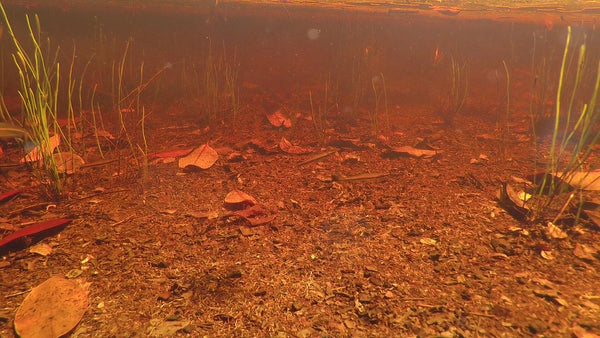- Continue Shopping
- Your Cart is Empty
The "audacity" of thinking a bit different....Tough talk, or a bunch of "bioload?"
Today, I'm sort of venturing out into "open waters', so to speak, and hitting you with a little piece of philosophy that's been on my mind for a while. I don't give all the answers, in this piece. Rather, I point out to you an issue that I think affects a lot of hobbyists at one point or another, and I'm rather opinionated on the subject...which I know shocks you...LOL. Some of you might be...pissed off. Others might grab on to what I'm getting at here. Much as we'd like it to be, the aquarium world is not always lovable stuffed animals and cotton candy...

I'm shockingly conservative as a practicing aquarist in many respects. Despite the fact that I preach tinted water, free thinking, self-expression, experimentation, and even a bit of rebellion in towards the "status quo" the hobby, I'm not all that "radical", really. From a standpoint of husbandry practices and decisions, I'm conservative, regardless of how "out there" the overall execution of the aquarium system I'm playing with is.
I've always believed that if you "err on the side of the water change", or refrain from "adding that one extra fish", or "go with the larger, more capable filter/heater/powerhead" that you'll have "cover" for even some of your most radical departures from the "norms" of the aquarium world. Putting in the effort, developing- and practicing- responsible husbandry skills, observation, and striving for consistency- will put a lot of "exotic" ideas within the realm of achievability in many cases.

Yet, the detractors are out there in "Aquariumland."
I have a distinct dislike for "them"- those people in the aquarium world who feel it necessary to discourage others from breaking new ground and doing things that are a bit different; those who love to preach and regurgitate the rhetoric of "because this is how it's done." I hate "keyboard warriors" who foment the criticism of anyone who dares to try something others have dismissed without ever even trying for themselves. A lot of these people seem almost angry for some reason...it's weird.

So, if I encourage a certain "rebellion" and even disrespect for certain aspects of "the aquarium establishment", then so be it. The way forward often involves facing uncertainties, criticsms, disapproval, and even scorn from some corners. Yet, breakthroughs and changes often require us to leave the comfortable nest of "accepted" and push towards the undefined "bleeding edge." Courage, tenacity, and discipline are part of your "gear" when you roam the outlying regions of the aquarium hobby. It can be uncomfortable and scary for the uninitiated- and disastrous for the unprepared and unwary. Failure is a real possibility.
Yet, that's the price of progress, isn't it?
The long preamble sort of sets the stage for today's piece.
I remember reading, not too long ago, a criticism of a very unique aquarium in one of those contests that sort of stood out in my head. It sort of epitomized to me the "danger of regurgitation" and over-generalizations that are preached in the hobby all too often. The tank in question was absolutely brimming with life- not necessarily fish- but lots of algae, mud, small crustaceans, biocover, etc. Very different from a conventional planted or aquascaped tank in many ways. It was incredibly realistic and very cool. Some questioned the "long-term sustainability/viability" of the aquarium because of all the "organics" created by all of the material.

Now, upon initially digesting it, you might be inclined to agree...It is a legitimate concern to consider the effect in a closed system of a lot of organic material...until you think about it in the greater context of aquarium practice and history. A lot of seemingly kooky ideas that we take for granted now were considered absolute "no-no's" decades ago.
Yes, I call "foul" on this attitude of big over-generalizations. This was sort of a typical "politically correct" aquarium-world observation- not really "nasty", actually well-intended, yet in reality, rather damaging. And really all too common these days, IMHO.
Suppositions and assumptions we make based on our own lack of experience and understanding can discourage progressive thinking.
In the example of the aquarium in question, just because an aquarium has a lot of "biological material" in it does not make it unmanageable or non-sustainable. It simply makes it more challenging to manage, and requires the aquarist to employ more aggressive, intense, or disciplined husbandry practices, efforts, and skills to keep things running long term.

It doesn't require screaming into the night and abandoning an idea because a few people tell you it can't work. It doesn't make it "unwise" or an act of "tempting fate" just because it cannot be done by a large number of hobbyists.
Really.
It requires work. Discipline. Observation. Diligence.
Effort.
These things may or may not be "replicable"- but they are not impossible to acquire for those who want to.
How much "stuff" can you have in a tank and still have it run successfully in the long run? Well, it depends on what kind of "stuff" you're talking about. Overcrowding a tank with fish IS irresponsible, realistically physically stunting the fishes, and ultimately creating an unhealthy environment for the inhabitants. No argument there. However, creating well-balanced, yet highly "populated" systems of a variety of organisms are entirely achievable. Deep substrates and algae/biofilm covered rocks, botanicals, and wood work.
Why do they exist in aquariums and in nature? Because they are organisms exploiting the available resources within their environment.

Look at a reef tank for a second. A typical "natural" reef system has sand, "macro/microalgae encrusted "live rock", a tremendous amount of small crustaceans, etc., along with coral and fishes. And these microcosms, if properly cared for, can last indefinitely.

When I see a very established, highly "populated" freshwater aquarium, I can't help but draw an analogy with reef tanks: A wide diversity of life on many levels, producers, consumers, predators and prey- right on up the line. And, when I see a tank with a ton of sand and leaves and pods and all of that other stuff- I see one of THE MOST sustainable, long-term viable systems...with the caveat that it's managed properly and observed carefully.

Sure, it's not easy for everyone to maintain, and it would be irresponsible for me to assert that "anyone can do it"- but neither are other specialized aquariums- brackish water systems, "SPS" reef tanks, Rift Lake cichlid tanks, "high tech" planted tanks, Discus breeding systems, etc. etc. And, yes, a glass or acrylic box in our living room is not Lake Tanganyika or The Orinoco River...But the laws that govern nature in the wild govern nature in the aquarium, too. You need to understand the interaction and consequences of the choices you make in building and populating your system in that context.

And, you just have to put in the work. Period.
Aquariums are not "set and forget" systems. You know this.

Are you "one missed water change from disaster?" Likely not. Those who push the envelope leave some safety margins. Good husbandry and observation provide this. And "unorthrodox" systems simply require different management approaches.
The very best "bleeding edge" aquariums are operated by hobbyists who hustle. Yeah. They do what it takes. Over-generalizations, preached in forums and articles online are only useful if they discourage an unwary, unprepared, un-dedicated, technically-incapable hobbyist from trying something that could lead to a disasterous and tragic loss of life. For the rest of us, those who understand the challenge, and are willing to rise up to meet it- you just need the "heads-up" that you have to put in the effort and stay on top of things...

So, don't over-generalize stuff. Yeah, some things are NOT advised for everyone. But that doesn't mean that they cannot work for anyone.
Question what you don't understand. Discuss potential shortcomings.
Be brave.
Stay focused. Stay disciplined. Stay honest.
And Stay Wet.
Scott Fellman
Tannin Aquatics










Scott Fellman
Author